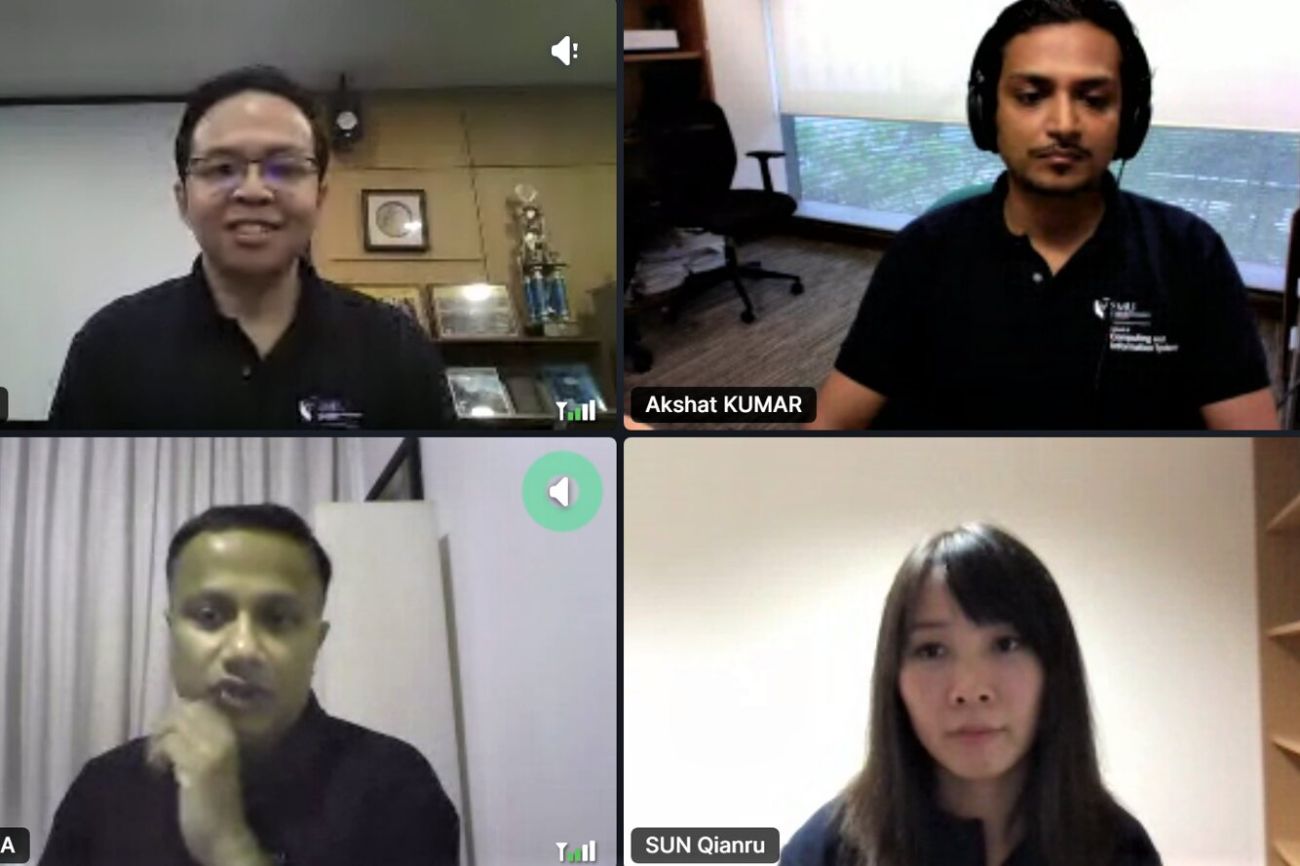
Artificial intelligence (AI) researchers and health experts modelling COVID-19's spread have warned that for vaccines to be useful in curbing the pandemic, a significant percentage of the population must be vaccinated to reach herd immunity. But, as SMU Vice Provost of Research Professor of Information Systems and Director of the SMU Centre for Applied Smart-Nation Analytics Archan Misra pointed out at an AI-centred panel discussion, held in conjunction with the SMU-Global Young Scientists Summit (GYSS) on 15 January 2021, from a purely self-interested point of view, each person would be best served if all the others got vaccinated and they themselves did not have to vaccinate – because that would stop the spread of the virus without their having to take on the possible risks of side effects. To account for these considerations, Prof Misra explained, the most powerful AI-based epidemiology models actually need to incorporate concepts from the behavioural sciences and game theory. Discussing the influence of social sciences such as economics and psychology on AI, the panel, comprising SMU Professor of Information Systems David Lo, SMU Associate Professor of Information Systems Akshat Kumar and SMU Assistant Professor of Information Systems Qianru Sun, concurred that AI researchers need to approach their work from an interdisciplinary angle and integrate knowledge from other fields to solve problems holistically.